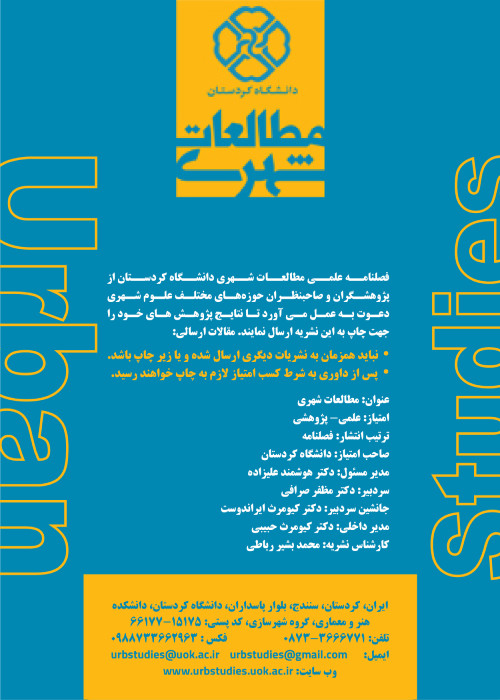Content analysis and comparative study of urban planning programs in the world and Iran with a sustainable development approach, with emphasis on master's courses
The change in the attitude of the urban planning discipline from the growth to the sustainability paradigm resulted from the inefficiency of the discipline and profession in response to environmental concerns around the world since the second half of the twentieth century; this shifted the substantial, procedural orientation of the discipline to the latter dominant paradigm. The result of such a change in attitude in the late twentieth century was reflected worldwide in formal and informal educational planning, and different orientations towards sustainability and sustainable development took shape according to the conditions in each country.
Theoretical Framework
The fundamental question that this article seeks to answer can be raised as follows: given the position of urban planners in plans and programs where they function as specialized managers and coordinators, what is the position of sustainable development with a focus on environmental and social issues in urban planning education, and how can urban development graduates be promoted in the field to improve the quality of professional activities? The purpose of this study is to analyze the pedagogical orientation of the urban planning discipline towards the concept of sustainable development and its position in the academic field, where professionals are trained to work in the profession.
It is directly affected by the nature of the field how an emerging idea is addressed in any knowledge. Transition from theory to practice requires the idea to go through the scientific process of education. Education that has adopted its input from research and profession conceptualizes it and transmits it to future students and professionals as educational content–involving the knowledge, skills, and value of urban planning curricula. Thus, different feedbacks can be provided to the profession given the type of acceptance and the way education deals with emerging phenomena and ideas in the field of urban planning. At the same time, there is the missing link between education and profession, which is being moved from the channel of education to profession in the transition towards sustainable development. The specific area and research gap elaborated on in this study is the number of orientation patterns of education towards sustainable development, which are specified based on the research method.
The main tool used in this fundamental qualitative descriptive-analytical method is content analysis, enabled through the capabilities of the SPSS software.
The results of the authors’ surveys at 128 universities in 9 different countries demonstrated that the predominant orientation in the teaching of sustainability is to provide an independent course on sustainability and environmental concepts and to teach sustainability in the procedure and materials of urban planning courses. The results can be observed in the case of Iran, as a developing country that strives to move towards sustainability, contrary to the direction taken in the profession corresponding to the discipline. In Iran, the only independent course on sustainability is that entitled Sustainable Urban Development, which is an optional course presented in two theoretical credits. Among all the universities with doctorate programs in urban planning, however, this course is taught only at two, namely the University of Tehran and Tehran University of Art. For a master’s degree in urban planning, on the other hand, it is included in different sub-disciplines of the curricula. Although courses with environmental content and topics are offered in all sub-disciplines, consideration of the issue of sustainability can be observed formally in urban design and regional planning as one and two optional courses, respectively.
The current trend will practically slow down the process of replacing the growth paradigm with the sustainability paradigm and bring about wide gaps therein. However, the proper orientation adopted in the discipline in recent years in regard to education of sustainability and sustainable development conveys the message that the gap will be reduced greatly in the future. This means that the appropriate orientation of the discipline (in education and research) is also reflected in the profession to help responds to the requirements of the field in the right direction. This is especially important in the training of graduates who will be developing plans and programs in the future. Education of sustainability and sustainable development, one of the criteria examined in the Green Metric ranking system, can be considered as a focus of future applied research and as a step forward in its achievement.
- حق عضویت دریافتی صرف حمایت از نشریات عضو و نگهداری، تکمیل و توسعه مگیران میشود.
- پرداخت حق اشتراک و دانلود مقالات اجازه بازنشر آن در سایر رسانههای چاپی و دیجیتال را به کاربر نمیدهد.



